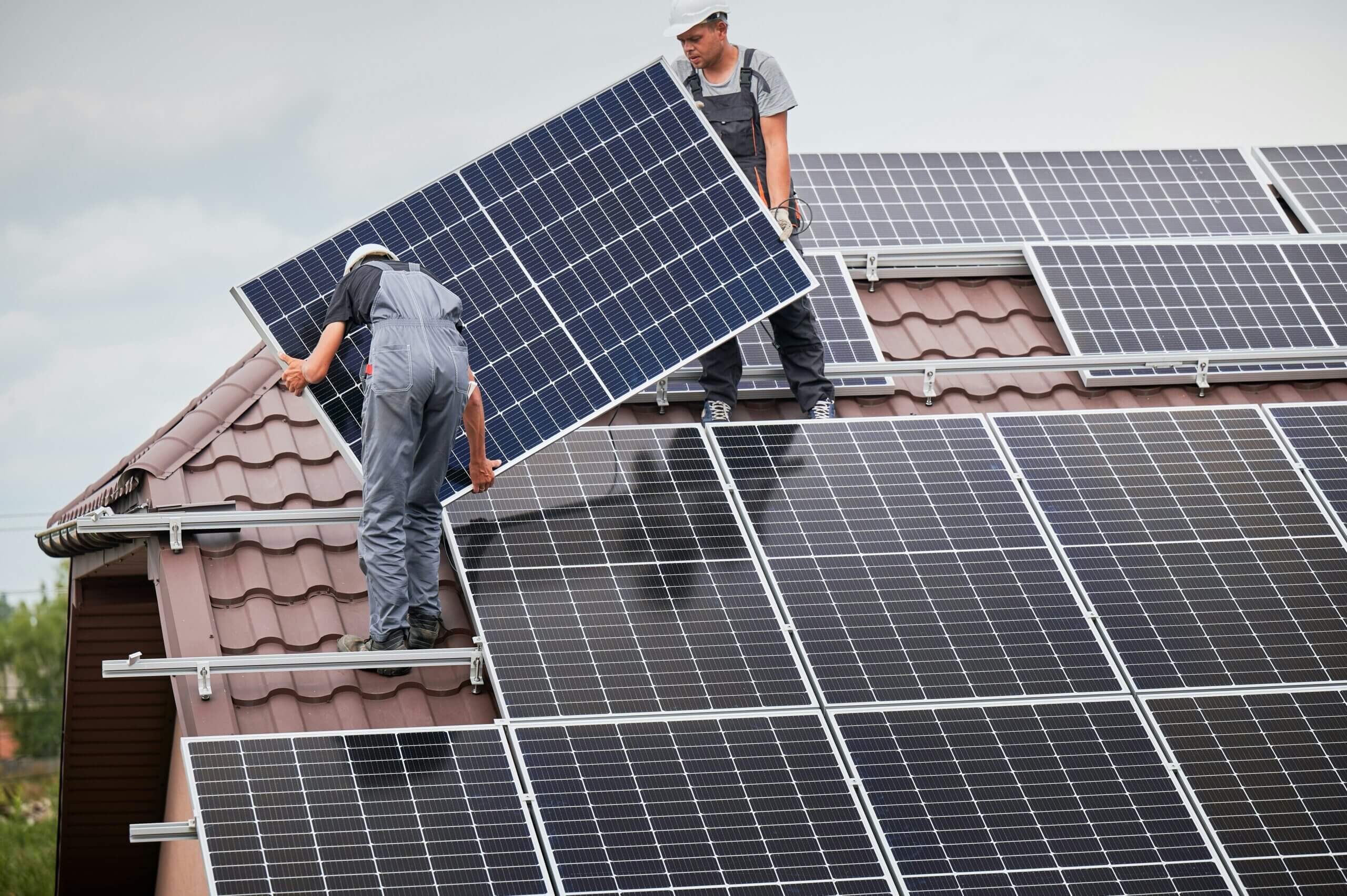What Is a Residential Solar Energy System?
Thinking about going solar? Here’s what you need to know. Switching to solar energy is a smart way to power your home while cutting down on electricity bills and helping the environment. It uses sunlight, a free and renewable resource, to generate electricity. If you’re considering solar, it helps to understand the basics: How the system works, what equipment is involved, how to care for it, and what it might cost.
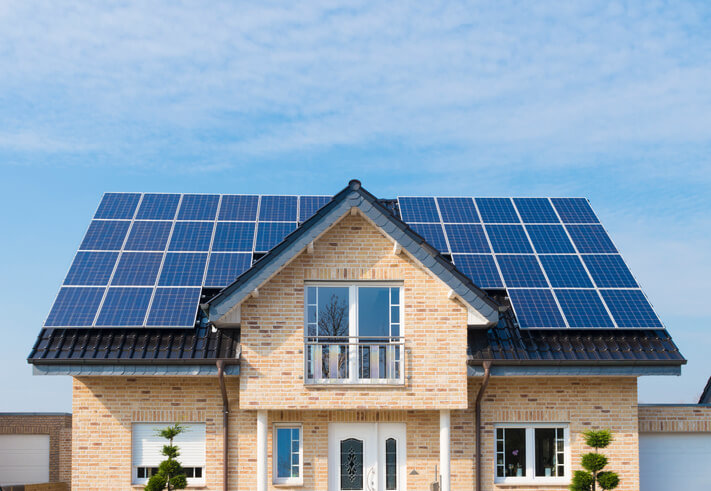
At the heart of a solar energy system are solar panels, which capture sunlight and turn it into direct current (DC) electricity. An inverter then changes that into alternating current (AC) electricity, which powers your home.
A complete solar setup may also include:
- Mounting systems that keep panels securely in place.
- Batteries that store extra energy for use when the sun isn’t shining.
- Monitoring tools to track how much power your system is making and using.
- Solar water, air, or pool heaters that help lower traditional heating costs.
Knowing what to expect can help you feel confident as you explore solar options for your home.
How Does a Solar Energy System Work?
Solar energy systems work by turning sunlight into electricity you can use in your home. Here’s a simple breakdown of how it all comes together:
- Sunlight Absorption – Solar panels soak up sunlight and produce direct current (DC) electricity.
- Energy Conversion – An inverter changes that DC power into alternating current (AC), which runs your household appliances.
- Energy Distribution – The AC electricity flows through your home’s electrical panel to power lights, appliances, and more.
- Grid Interaction – If your system is connected to the grid, any extra energy goes back to the utility company. You may earn credits through net metering.
- Battery Storage – If you have a battery, extra energy can be saved for later, like at night or during outages.
Solar panels work well in many different climates. Just keep in mind that shading from trees or buildings, local weather, and your roof’s pitch can affect how much energy your system produces.
Frequently Asked Questions
Choosing the Right Solar Energy System for Your Home
Picking the best solar setup for your home means thinking through a few key details:
- Your Energy Use – Look at your electric bills to figure out how much energy your home uses. This helps you size your system right.
- Roof and Property Setup – A sunny roof with little shade works best, but solar panels can also be installed in your yard or on other structures.
- Budget and Savings – Consider both the upfront cost and how much you’ll save over time on electricity bills.
- Incentives and Tax Credits – Check for local rebates and federal tax credits that can lower your installation costs.
- Expert Advice – Talk to certified solar installers who can walk you through your options and give accurate quotes.
Taking the time to look at these factors will help you choose a solar energy system that fits your home and budget.
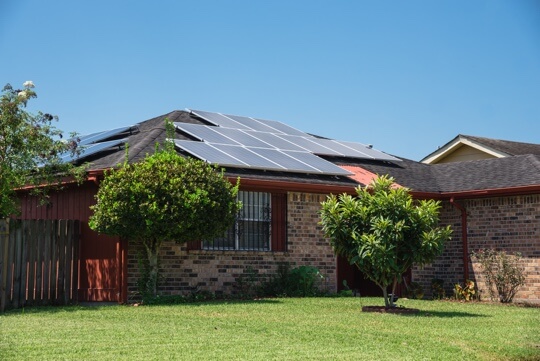
What Are the Different Types of Solar Energy Systems?
When it comes to solar energy, you’ve got options. Here are the three main types of systems to consider:
- Grid-Tied Systems – These are the most common. They’re connected to your local utility grid, so you can use solar power when the sun is shining and draw from the grid when it’s not. If your system makes more power than you use, the extra goes back to the grid, and you may earn credits through net metering.
- Off-Grid Systems – These stand alone and aren’t connected to the utility grid. They rely on batteries to store energy, making them ideal for remote homes or cabins where grid access isn’t available.
- Hybrid Systems – A mix of both. Hybrid systems connect to the grid and also include batteries. You can store extra energy for later use and still pull from the grid when needed. It’s a great way to stay flexible and prepared.
The right system for you depends on how much energy you use, where you live, and what fits your budget.
Frequently Asked Questions
How to Maintain Your Solar Energy System
Keeping your solar energy system in top shape helps it run efficiently and last longer. Here’s how to take care of it:
- Clean the Panels – Brush off dirt, leaves, and other debris so your panels can soak up as much sunlight as possible.
- Schedule Annual Inspections – Have a certified solar technician check everything once a year to make sure it’s working properly.
- Keep an Eye on Performance – Use your system’s monitoring tools to spot any sudden drops in energy production.
- Trim Trees Nearby – Cut back branches that might cast shade on your panels.
- Check the Inverter and Wiring – Make sure all parts of your system, especially the inverter and electrical connections, are in good working order.
With regular upkeep, solar panels can keep producing power for 25 years or more with only minor drops in efficiency.
Frequently Asked Questions
Solar Energy System Replacement and Installation Costs
The cost of installing or replacing a solar energy system varies based on several factors:
- System Size: Larger systems generate more electricity but come with higher upfront costs.
- Equipment Quality: Premium components may have higher costs but offer better efficiency and durability.
- Installation Complexity: Challenging installations, such as those on steep roofs, may incur additional labor charges.
- Geographic Location: Local labor rates and permitting fees can influence overall costs.
On average, residential solar installations in the United States range from $15,000 to $25,000 before incentives. However, federal tax credits, state rebates, and other incentives can significantly reduce the net cost. It’s advisable to consult with local solar providers for precise estimates tailored to your situation.
Cost by Type of System:
- Solar Roof Shingles: $63,000 to $75,000
- Solar Water Heaters: $9,000 on average
- Solar Pool Heater: $5,000 on average
- Solar Air Heater: $6,500 on average
- Solar Panel Installation: $12,000 to $30,000
- Solar Panel Removal: $300 to $1,000 per panel
- Solar Batteries: $9,000 to $19,000
Additionally, labor and installation will run you about $70 per hour, or a few thousand dollars total for a multi-day job.
Frequently Asked Questions
Common Issues and Troubleshooting Tips for Solar Energy Systems
Residential solar panel systems are built to last and usually run with little trouble. Still, like any home system, problems can pop up from time to time. Knowing what to look for and how to handle it can help keep things running smoothly. Here are common problems and how to fix them.
Reduced Energy Output
- What’s Happening: Your system isn’t producing as much power as it should.
- Why: This could be due to dirt on the panels, shading from trees or buildings, or a faulty part.
- Fix It: Clean your solar panels regularly and keep nearby trees trimmed. Schedule a checkup if the issue continues.
Inverter Trouble
- What’s Happening: The inverter stops converting solar energy into usable power.
- Why: Inverters can develop faults that interrupt energy flow.
- Fix It: Watch for error messages or warning lights. If you notice a problem, call a certified technician.
Physical Damage
- What’s Happening: Your panels look cracked or broken.
- Why: Storms, falling branches, or accidents can cause damage.
- Fix It: After any big storm, inspect your panels. If you spot damage, have a professional check them out.
Connectivity Problems
- What’s Happening: Your monitoring system isn’t working.
- Why: A weak internet connection or software glitch might be the cause.
- Fix It: Make sure your internet is stable. Check the manual for troubleshooting steps or call a pro if needed.
Solar Water Heater Issues
- What’s Happening: You’re not getting enough hot water, or you hear strange noises.
- Why: There could be a blockage, leak, or a problem with the pump.
- Fix It: Check that collectors aren’t shaded and look for leaks. Make sure the pump is running. A technician can help with routine maintenance.
Solar Pool Heater Problems
- What’s Happening: The pool’s not warming up like it should.
- Why: The system might be clogged, leaking, or not flowing properly.
- Fix It: Clean the collectors, check for leaks, and make sure valves and filters are in the right position and working.
If you’re ever unsure or facing a persistent issue, it’s best to bring in a certified solar expert. They’ll keep your system safe, efficient, and ready to perform.
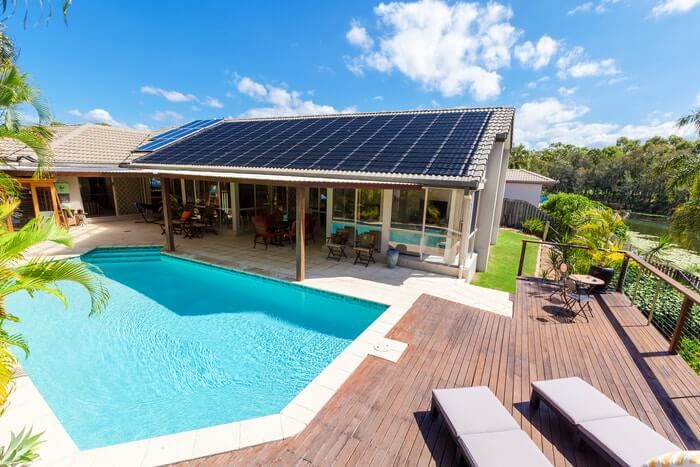
Frequently Asked Questions
Costs, Rebates, and Environmental Impact of Solar Energy Systems
Going solar isn’t just good for the planet. It’s great for your wallet, too. Here’s how you can benefit:
- Lower Energy Bills – Solar panels can shrink your monthly utility costs, saving you thousands over time.
- Federal Tax Credit – You can claim a federal tax credit that helps cover solar panel installation costs, making the process more affordable.
- Local and State Incentives – Depending on where you live, you might qualify for extra rebates or credits that boost your savings.
- Cleaner, Greener Power – Solar energy cuts down on carbon emissions and supports a more sustainable, independent energy future.
Making the switch to solar is a long-term move that supports your home, your budget, and the environment.
Frequently Asked Questions
Topics to Explore
What to Do After Installing a Solar Energy System
Once your solar panels installation is complete, a few simple steps can help you get the most out of your system:
- Check the Installation – Make sure the panels are securely in place, angled correctly, and clear of anything that might block sunlight.
- Review Your Paperwork – Get familiar with your warranties, system details, and any service agreements you may have.
- Track Performance – Use your monitoring system to keep an eye on how much energy you’re producing. Catching issues early can prevent bigger problems later.
- Plan for Regular Maintenance – Schedule professional checkups to keep your system running efficiently year after year.
- Watch Your Savings – Compare your electric bills before and after installation to see how much you’re saving. You might also find new ways to reduce energy use.
With a little care and attention, your solar system can deliver clean, reliable energy, and real savings, for decades to come.
Ready to get your project started?
Let us find the best Solar pros in your area, then easily request quotes, book a contractor, and get the job done. It's that easy.

Homeowner Resources
Here are the top articles that homeowners found useful when planning their solar energy project and navigating the contractor hiring process.
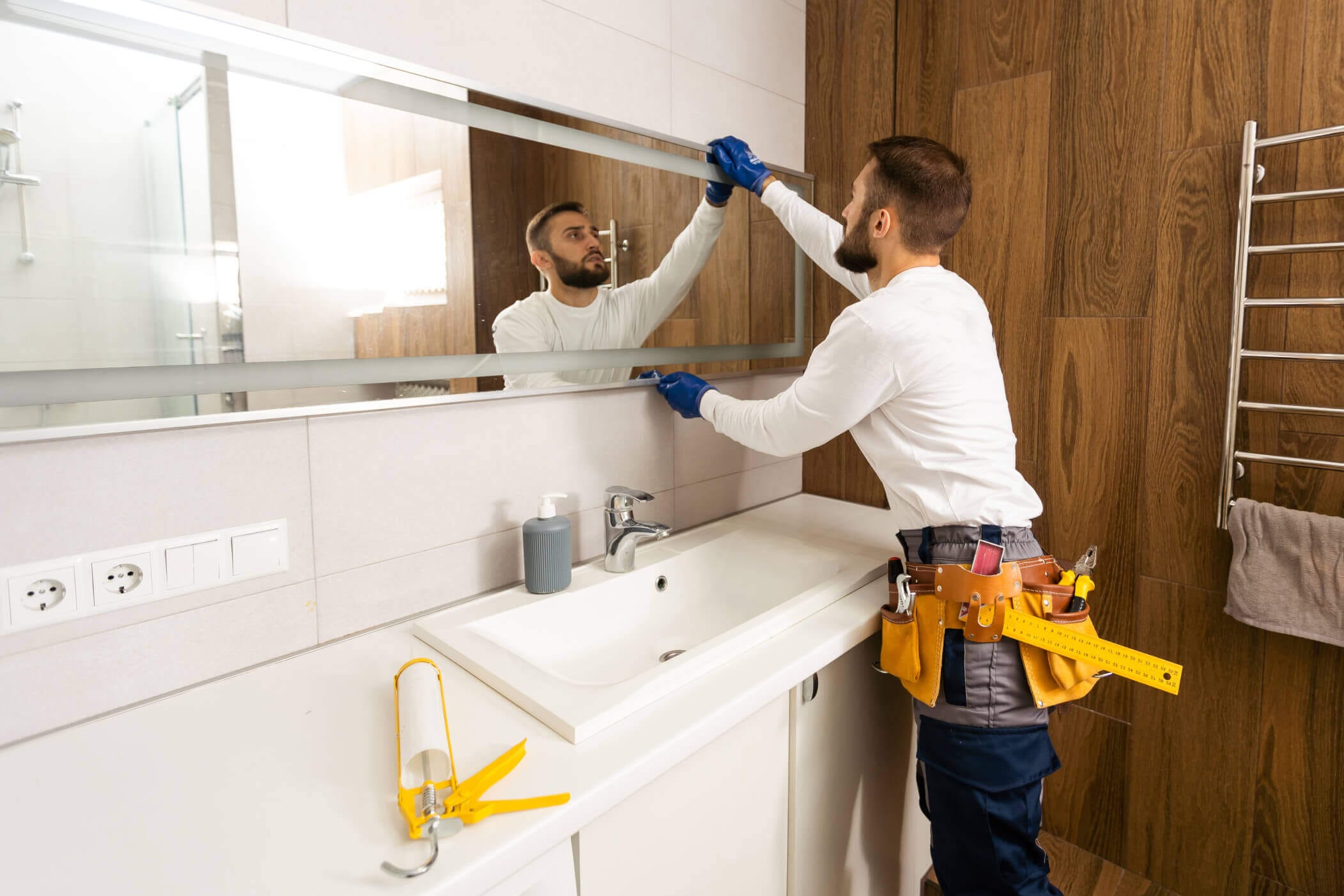
Real Stories, Real Success
See how our solutions empower homeowner projects and experiences.
